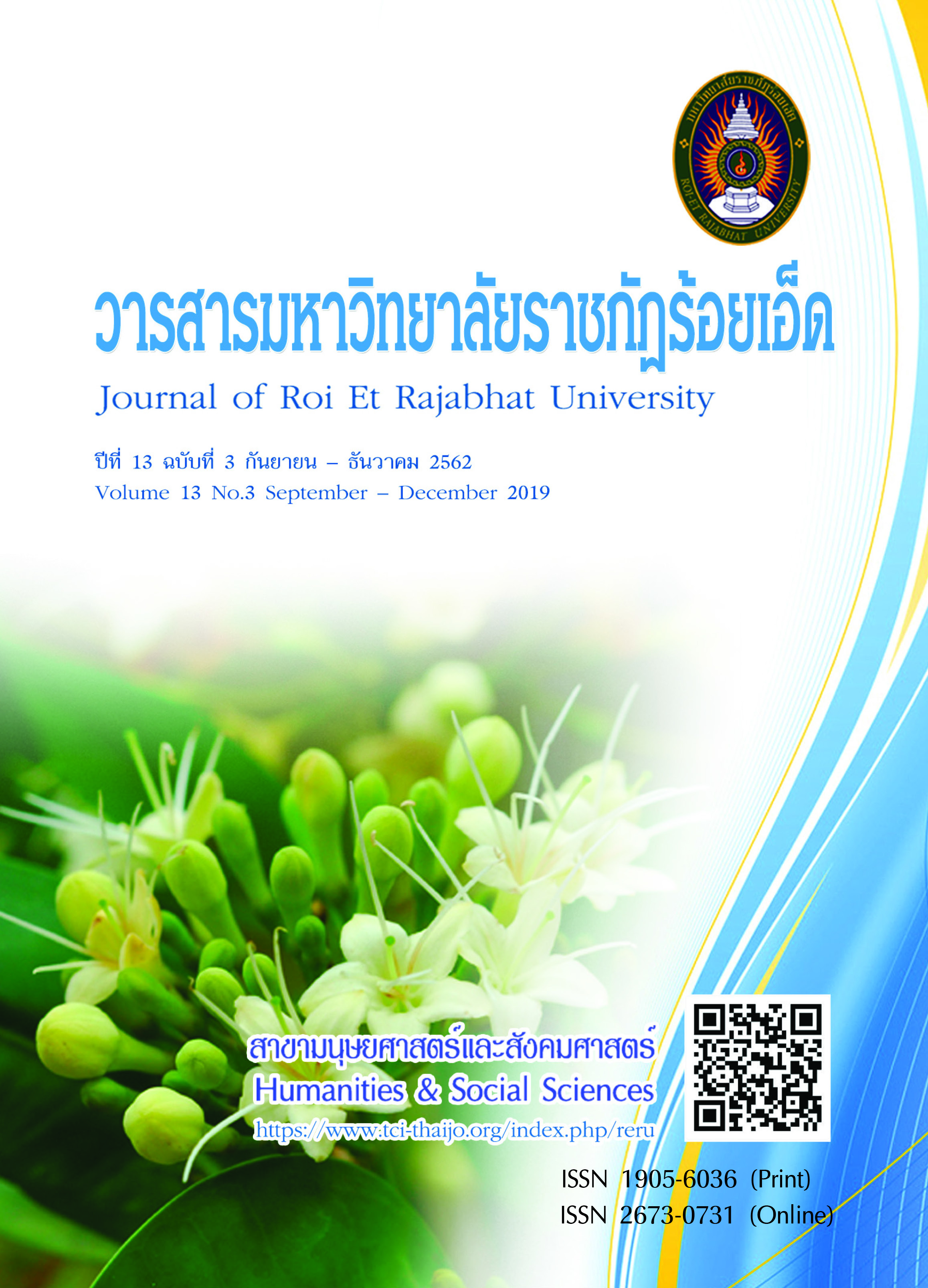Academic Administration in Experience Enhancement Activities based on Montessori Concepts of Schools under the Office of Basic Education Commission, Chiang Mai Province
Keywords:
academic administration, experience enhancement activities, Montessori conceptsAbstract
The purpose of this research was to: 1) study the academic administration status in the activities to enhance experiences based on Montessori concept of early childhood schools under the Office of Basic Education Commission, Chiang Mai Province by using PDCA 2 process ) Develop an academic administration manual for activities that enhance the experience based on Montessori concepts of early childhood schools under the office Using the PDCA process. The target population used in this study is school administrators. Primary teachers Parents of early childhood students in the number of 90 people. The tools used in the research are the questionnaire, summary form, group meeting (Work Shop), suitability assessment and feasibility of the manual. And an academic administration manual on activities that enhance the experience based on Montessori concepts Analyze data by analyzing and synthesizing content The research found that State of academic administration in activities to enhance experiences based on Montessori concepts of early childhood schools under the Office of the Basic Education Commission, Chiang Mai Province Academic administration is conducted according to the PDCA cycle, which covers academic work in curriculum development at the early childhood level of 2017in terms of learning experience. In the development of instructional media Development assessment With the highest level of operation But still lacking cooperation from all parties in a systematic way, making academic administration in some schools not achieving the goal as expected Therefore, the group meeting to find the results of the development of the academic administration manual according to Montessori concept is carried out according to the PDCA cycle and the rules are clearly defined. For use in the administration of academic administration at the early childhood level of schools under the Office of Basic Education Commission, Chiang Mai Province
References
กระทรวงศึกษาธิการ. (2540). คู่มือการพัฒนาโรงเรียนเข้าสู่มาตรฐานการศึกษา การบริหารระบบคุณภาพ. กรุงเทพฯ: กรมวิชาการ.
คีรีบูน จงวุฒิเวศย์ และมาเรียม นิลพันธุ์. (2542). รายงานการวิจัย เรื่องการศึกษาและการจัดทำคู่มือปฏิบัติงานอาสาสมัครท้องถิ่น
ในการดูแลรักษามรดกทางศิลปวัฒนธรรม (อส.มศ.). นครปฐม: มหาวิทยาลัยศิลปากร วิทยาเขตพระราชวังสนามจันทร์.
ธนภัทร วันทาพงษ์, สมใจ ภูมิพันธุ์ และรัชนีเพ็ญ พลเยี่ยม. (2559). ปัจจัยสมรรถนะของผู้บริหารสถานศึกษาที่ส่งผลต่อ
ประสิทธิภาพการบริหารโดยใช้โรงเรียนเป็นฐาน ของโรงเรียนมัธยมศึกษาสังกัดสำนักงานเขตพื้นที่การศึกษา
มัธยมศึกษา เขต 27 จังหวัดร้อยเอ็ด. วารสารบัณฑิตศึกษา มหาวิทยาลัยราชภัฏสกลนคร, 13(60), 141-150.
โนชญ์ ชาญด้วยกิจ. (2553). การศึกษาระดับการมีส่วนร่วมของชุมชนในการพัฒนาโรงเรียนมัธยมศึกษา สังกัดสำนักงานเขตพื้นที่
การศึกษาระยองเขต 2. วิทยานิพนธ์ ครุศาสตรมหาบัณฑิต สาขาวิชาการบริหารการศึกษา. จันทบุรี: มหาวิทยาลัย
ราชภัฏรำไพพรรณี.
บุญชม ศรีสะอาด. (2553). การวิจัยเบื้องต้น (พิมพ์ครั้งที่ 8). กรุงเทพฯ: สุริยสาส์น.
บุญรักษ์ ยอดเพชร. (2560). โรงเรียนพัฒนาคุณภาพต่อเนื่องกับการสนับสนุนของ สพฐ. กรุงเทพฯ: สำนักงานคณะกรรมการ
การศึกษาขั้นพื้นฐาน.
บุบผา เรืองรอง. (2554). การจัดกิจกรรมเสริมประสบการณ์ตามแนวคิดแบบมอนเตสซอรี่. นครศรีธรรมราช: มหาวิทยาลัย
ราชภัฏนครศรีธรรมราช.
พวงรัตน์ ทวีรัตน์. (2543). วิธีการวิจัยทางพฤติกรรมศาสตร์และสังคมศาสตร์ (พิมพ์ครั้งที่ 8). กรุงเทพฯ: สำนักพิมพ์
แห่งจุฬาลงกรณ์มหาวิทยาลัย.
วิจารณ์ พานิช (2555). วิถีสร้างการเรียนรู้เพื่อศิษย์ ในศตวรรษที่ 21. กรุงเทพฯ: มูลนิธิสดศรี-สฤษดิ์วงศ์.
วิฑูรย์ สิมะโชคดี. (2541). TQM คู่มือสู่องค์กรคุณภาพยุค 2000. กรุงเทพฯ: ทีพีเอ พับลิซซิ่ง.
สุจริต คูณธนกุลวงศ์. (2543). การบริหารโรงเรียน : นวัตกรรมเทคนิค ประสบการณ์. กรุงเทพฯ: ศาสนา.
Downloads
Published
How to Cite
Issue
Section
License
บทความที่ได้รับการตีพิมพ์เป็นลิขสิทธิ์ของวารสารมหาวิทยาลัยราชภัฎร้อยเอ็ด
ข้อความที่ปรากฏในบทความแต่ละเรื่องในวารสารวิชาการเล่มนี้เป็นความคิดเห็นส่วนตัวของผู้เขียนแต่ละท่านไม่เกี่ยวข้องกับมหาวิทยาลัยราชภัฎร้อยเอ็ด และคณาจารย์ท่านอื่นๆในมหาวิทยาลัยฯ แต่อย่างใด ความรับผิดชอบองค์ประกอบทั้งหมดของบทความแต่ละเรื่องเป็นของผู้เขียนแต่ละท่าน หากมีความผิดพลาดใดๆ ผู้เขียนแต่ละท่านจะรับผิดชอบบทความของตนเองแต่ผู้เดียว





